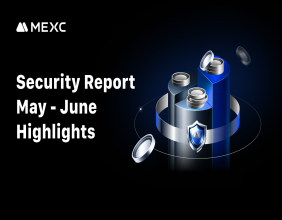Highlights:
- Vulture funds buy distressed debt of companies or nations at a discounted price.
- These funds often pursue legal actions to claim the full value of the debt.
- They profit from financially troubled entities, resembling vultures in their opportunistic strategy.
In the complex world of finance, a "vulture fund" is a type of investment fund known for its aggressive strategy of purchasing distressed debt from companies or sovereign nations that are on the verge of financial collapse. The term "vulture" reflects the opportunistic nature of these funds, which capitalize on the misfortune of failing entities. Vulture funds often buy debt at a significant discount, then pursue full repayment, frequently through legal means. While these funds can generate substantial profits for their investors, they are often seen as controversial due to the financial pressure they place on already struggling organizations or nations. This article explores what vulture funds are, how they operate, and their broader implications on global finance.
What is a Vulture Fund?
A vulture fund is a specialized investment vehicle that focuses on purchasing debt from distressed entities—either companies nearing bankruptcy or nations in severe financial distress. These funds typically acquire the debt at a steep discount, betting that they can either restructure the debt or, more often, enforce full repayment through litigation.
Vulture funds are often distinguished from other types of distressed debt funds by their highly aggressive tactics. While some distressed debt investors aim to restructure or rehabilitate the failing company, vulture funds are generally more focused on maximizing their returns, even if that means pursuing legal action or forcing liquidation. Their primary goal is not to help the debtor recover but to profit from their dire financial situation.
How Vulture Funds Operate
Vulture funds are known for their strategic approach to purchasing and profiting from distressed debt. Here’s a breakdown of how they typically operate:
- Buying Debt at a Discount: Vulture funds scour the market for distressed debt—whether it's from commercial companies on the brink of bankruptcy or sovereign nations struggling to meet their financial obligations. These funds typically purchase this debt at a fraction of its face value, as other creditors are often eager to offload risky assets. For example, a vulture fund might buy a company’s debt for 20 or 30 cents on the dollar, allowing it to profit if it can recover more than the purchase price.
- Demanding Full Repayment: Once a vulture fund acquires the distressed debt, it often takes an aggressive stance by demanding the full value of the debt, not the discounted price it paid. This can lead to lawsuits and legal battles, especially when the debtor is a sovereign nation. In many cases, the fund aims to enforce the original terms of the debt contract, even if the company or nation is unable to repay in full.
- Litigation and Negotiation: Vulture funds are infamous for using litigation to pursue repayment, especially in cases involving sovereign nations. For instance, a fund may sue a country in international courts, demanding full repayment of the bonds it holds. In some cases, these legal battles can drag on for years, but vulture funds are often willing to wait if they believe the payout will be significant. In commercial cases, the fund might pressure the company into liquidation or force it to sell off assets to satisfy the debt.
- Settlements and Profits: If successful, vulture funds can either win full repayment through the courts or negotiate a settlement that still yields a significant profit. Since they buy the debt at a discount, even a partial settlement can lead to substantial returns. For example, if a fund buys $100 million in debt for $30 million and then successfully recovers $70 million through a settlement, it has effectively doubled its investment.
Examples of Vulture Funds in Action
Several high-profile cases have brought vulture funds into the public eye, particularly in the realm of sovereign debt. These cases illustrate how vulture funds operate and the potential consequences for the debtor.
- Argentina's Debt Crisis: One of the most famous examples of vulture fund activity is the legal battle between Argentina and a group of hedge funds led by NML Capital. Following Argentina’s default on its debt in 2001, these funds purchased Argentine bonds at a deep discount. When Argentina attempted to restructure its debt and offered bondholders a partial repayment, the vulture funds refused the offer and instead pursued full repayment through the U.S. courts. After years of litigation, NML Capital ultimately won a settlement of over $2 billion, far more than it had paid for the bonds.
- Peru and Elliott Management: Another notable case involved Peru in the 1990s. Elliott Management, a prominent vulture fund, bought distressed Peruvian debt at a discount and then sued the country for full repayment. After a lengthy legal battle, Elliott succeeded in securing a payment of $58 million on bonds it had bought for significantly less. The case set a precedent for how vulture funds could use litigation to enforce repayment.
- Commercial Cases: Vulture funds also target struggling companies, especially in sectors like retail, energy, or manufacturing. In these cases, the funds may push the company into liquidation or negotiate a settlement that forces the company to sell off valuable assets. By acquiring distressed debt at a discount, vulture funds can make a substantial profit even if the company eventually goes under.
The Ethical Debate Surrounding Vulture Funds
Vulture funds are often the subject of intense ethical debate. On one hand, these funds operate within the bounds of the law and are simply maximizing returns for their investors, as any other investment fund would do. By buying distressed debt and pursuing repayment, they argue that they are enforcing the rule of law and holding debtors accountable for their obligations.
On the other hand, critics argue that vulture funds exploit financially distressed companies and nations, worsening their situations rather than helping them recover. For sovereign nations, the actions of vulture funds can be particularly damaging, as they often target countries that are already grappling with economic crises, poverty, and political instability. By demanding full repayment through the courts, these funds can divert critical resources away from social programs, infrastructure development, and economic recovery.
In some cases, vulture funds are accused of taking advantage of legal loopholes and using aggressive tactics to extract payments that far exceed the original value of the bonds they purchased. This can lead to public outcry and calls for tighter regulation of vulture fund activity, particularly in the realm of sovereign debt.
The Role of Vulture Funds in the Financial System
Despite the controversy, vulture funds do play a role in the broader financial system. By purchasing distressed debt, they provide liquidity to the market, allowing other creditors to exit their positions and move on to more stable investments. This can help stabilize markets in times of crisis by providing an outlet for selling risky assets.
Additionally, by enforcing the terms of debt contracts, vulture funds can act as a deterrent against reckless borrowing. Their aggressive pursuit of repayment signals to both companies and countries that defaulting on debt has serious consequences, potentially encouraging more responsible fiscal management.
However, the long-term impact of vulture fund activity is still hotly debated. While these funds may create short-term profits for investors, the pressure they place on debtors can have lasting negative effects, especially when they target vulnerable nations or industries.
Conclusion
Vulture funds are a unique and controversial part of the investment world, known for their aggressive tactics and focus on distressed debt. While they provide liquidity and enforce debt contracts, their methods often raise ethical questions, particularly when they target impoverished nations or struggling industries. For investors, vulture funds offer the potential for significant profits, but their strategies can have far-reaching consequences for the entities they target. As the global financial system continues to evolve, the role and regulation of vulture funds will remain a topic of ongoing debate, balancing profit-making opportunities with broader economic and social implications.





